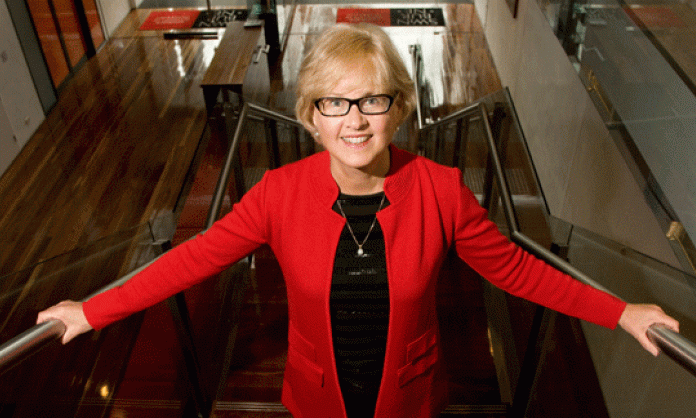On a bleak Melbourne night in mid-April, one of higher education’s most notorious ruling class warriors, Melbourne University vice-chancellor Glynn Davis, addressed a forum convened by the National Tertiary and Education Union. Days earlier, his institution posted an annual surplus of $182 million. Predictably, the union crowd pressured Davis to justify his massive salary – particularly in light of Melbourne University’s current restructure, which has seen over 500 lose their jobs. He smirked before replying: “Only a mug defends their salary.”
For the record, Davis took home $1.085 million last year. And that’s only the salary portion of his remuneration package. But Davis was certainly not the only VC slurping at the trough in 2014, as recently released financial statements reveal.
Australia’s highest-paid vice-chancellor is Australian Catholic University’s Greg Craven, who last year pocketed $1.2 million. Craven is among the most vocal supporters of tertiary fee deregulation, declaring in the Australian: “Christopher Pyne’s deregulation agenda has to pass … universities must be able to set their own fees.” We presume that in return for his cushy salary, Craven had to at least turn up to his office occasionally.
This is more than was expected of the vice-chancellor of Murdoch University, Richard Higgott. In September and October 2014, Higgott continued to receive his $760,000 annual salary while on suspension due to referral to the Western Australian Crime and Corruption Commission. Soon enough, the 65-year-old professor decided to retire rather than face the music. “It is the right time for me to retire”, he told the ABC. “I have other activities I wish to pursue.”
Higgott’s departure evidently caused a few tears among the rest of the Murdoch University executive, with chancellor David Flanagan lauding his “vision and leadership”. Flanagan himself, like most university chancellors, is a multibillionaire capitalist with no background in education. He is the chair of WA mining company Atlas Iron – named after Ayn Rand’s infamous 1957 right wing novel, Atlas Shrugged.
And Flanagan is of a type. His counterpart at RMIT University, for example, is Ziggy Switkowski, former CEO of Telstra during its darkest union-busting days and a long-time spokesperson for the Australian nuclear lobby. Switkowski’s first public statements after taking the position in 2011 included an inhuman defence of nuclear power in the face of the Fukushima disaster. At that time Switkowski was also the director of Lynas Corporation, then building a refinery and a radioactive waste dump in Malaysia amid mass resistance from the local population.
The corporatisation of universities is hardly a new phenomenon. These class warriors have long run the campuses, drawing massive pay packets, and pursuing an increasingly barefaced anti-union agenda.
But one recent example is particularly revealing. In late March, Swinburne University agreed to settle out of court with the NTEU after a two-year legal battle. The university had set up a fully-owned subsidiary – a phoenix company – with the aim of transferring more than 100 employees onto sub-standard contracts with the new company.
As part of the settlement, management agreed to admit that the whole thing had been a union-busting exercise. Colin Long, NTEU Victorian division secretary, summed it up: “It’s really the first case in the university sector of a university management trying to do a bit like what Patrick Stevedores tried to do to the maritime union in 1998.”
And in keeping with standard procedure for the CEO set, Swinburne vice-chancellor Linda Kristjanson was rewarded for her efforts. Financial statements show that last year she was handed the biggest pay increase of any VC in the state, pocketing an extra $70,000 – a rise of more than 9 percent – bringing her salary to a weighty $825,000.











